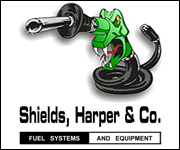|
|
Join us for CIOMA's 2016 Government Relations/Membership and Day at the Capitol Meetings on Tuesday and Wednesday, March 15-16, 2016 in Sacramento, California.
Visit https://www.naylornetwork.com/cio-nwl/articles/index.asp?aid=361607&issueID=46771 to view the full article online. |
|
|
The California Department of Transportation is seeking 5,000 volunteers for an experimental program that will charge motorists a fee based on how far they drive -- a proposal that could replace the state gas tax as a way to fund highway maintenance and repairs.
Visit https://www.naylornetwork.com/cio-nwl/articles/index.asp?aid=361661&issueID=46771 to view the full article online. |
|
SACRAMENTO - A committee of the California State Energy Commission is looking for an explanation for why gasoline in the state costs more than most other states.
There is an acknowledgement that state clean gasoline requirements and a 15 cent per gallon tax for reducing pollution and global warming add to the cost, but that apparently doesn't account for all of the difference.
"The state has a problem, this has cost state consumers billions of dollars over the years," said Severin Borenstein, chair of the Petroleum Market Advisory Committee and a professor of economics at UC Berkeley.
Experts testified that California gas prices are highly reliant on the volatile spot market for oil and gasoline. Purchases by big players can effect the availability and price, which might not be tied to the price per barrel of oil, which has been falling.
Consumer groups say large oil companies are carefully gaming the system by controlling the import and export of oil and gasoline to create an artificial shortage to keep prices high.
Oil marketers attribute the cost of California gasoline to state clean air formulations placed on refiners. They say past investigations into price fixing have turned up nothing.
"Based upon that history, I don't think that there are these secret deals being had," said Jay McKeeman with the California Independent Oil Marketers Association. But Borenstein says there are flaws in the system that invite abuse.
"I think there is certainly a very big risk that they are able to manipulate prices," Borenstein said.
The committee is looking into solutions like having the state or sellers hold onto oil and gas inventories to even out spikes in prices, temporarily waive state requirements on gasoline formulations, and to have oil companies be more transparent about how much product they are holding.
News Release provided by: Lonnie Wong, FOX 40 news
|
|
Non-EMV compliant retailers are on the hook for fraudulent transactions, including the chargebacks they are not liable for.
Visit https://www.naylornetwork.com/cio-nwl/articles/index.asp?aid=361645&issueID=46771 to view the full article online. |
|
Earlier this month, CIOMA co-hosted 2 of the 16 NACS Industry Update Luncheons held around the country at two locations in (Northern and Southern) California.
Visit https://www.naylornetwork.com/cio-nwl/articles/index.asp?aid=361439&issueID=46771 to view the full article online. |
|
OSHA administrator David Michaels is asking meteorologists and newscasters to incorporate worker safety messages into broadcasts about approaching hot weather hazards.
Visit https://www.naylornetwork.com/cio-nwl/articles/index.asp?aid=361636&issueID=46771 to view the full article online. |
|
The California Independent Oil Marketers Oil Marketers Association kick-started the New Year by hosting a Government Relations (GR) Meeting as well as a first-ever Membership Town Hall Meeting.
Visit https://www.naylornetwork.com/cio-nwl/articles/index.asp?aid=361447&issueID=46771 to view the full article online. |
|
With Valentine’s Day a few days away, and the rush for Hallmark cards and chocolates at a frenzied-level, the holiday is a reminder to employers that office romances can raise a slew of problems. Companies should pay special attention to Valentine’s Day behavior and remind employees of professional boundaries to avoid any incidents that could be construed by an employee as unwanted harassment. Sexual harassment and unwanted attention can result from fractured workplace relationships and pose even more of a risk after a romantic relationships in the workplace sour. However, there are steps a company can take to minimize the risk of such an outcome and limit claims of harassment as a result of romantic relationships in the workplace. One way is to limit romantic relationships in the workplace and another is to require employees engaging in such relationships to sign a "Love Contract."
Workplace Romance
Romance gone awry, misinterpreted comments, or unwanted touching can result in confusion and discord in the workplace. Ultimately, these situations can give rise to complaints of harassment, particularly where one participant in the relationship later claims that, rather than a romance, the relationship was actually stalking or harassment. Although controversial and potentially unpopular, policies prohibiting or discouraging romantic relationships between supervisors and subordinates can be useful tools in preventing claims of harassment.
In California, the California Constitution protects an employees’ right to privacy and protects lawful conduct occurring during nonworking hours away from the employer’s premises. Therefore, to the extent actions of romantic employees do not affect the workplace, employers are unable to prohibit these relationships. However, in situations where there is romantic relationship between a supervisor and a subordinate, an employer can strongly argue against a romantic relationship in the workplace. To implement such a policy, companies should stress that these types of relationships create a conflict of interest. At least one California appellate court has enforced an employer’s conflict of interest policy prohibiting supervisor-subordinate romances.
If such a relationship does occur, the company can then take action with respect to the employees. In fact, most companies have policies stating that such actions can result in discipline ranging from transfer to termination.
The severity of the discipline always depends on the nature of the relationship and the type of discord it creates. However, companies should try the least intrusive means first and transfer one of the parties to another department if a position is available. Companies should be aware, however, that transfer doesn’t always solve the problem. For example, by transferring a manager to supervise a different department, the company could potentially magnify the problem by creating interdepartmental conflict. If a transfer doesn’t fix the problem, or if there is no other appropriate position available, termination may be the only option.
If the conflict can be resolved short of termination, both parties will remain in the workplace. Therefore, the employer should remain particularly aware of both employees’ disposition in the workplace by keeping in touch with their supervisors. Follow-up interviews with both employees at a reasonable interval, such as one to three months after the transfer, also should help to keep emotions in check.
Love Contracts
Another tactic is to require employees to execute Love Contracts formalizing the consensual nature of a workplace romantic relationship. Such agreements have been used with frequency over the past 10 years. However, employers should consult legal counsel prior to implementing such policies in order to ensure their legality. Such contracts clarify that both parties understand that the relationship will not result in any unique benefits for either party.
Although a Love Contract cannot eliminate the possibility of harassment claims, or litigation following the deterioration of a romantic workplace relationship, it can serve as strong evidence that the parties to the contract were involved in a consensual relationship. Most companies find that Love Contracts are useful to help keep valuable employees on staff while helping to protect the employer from a harassment lawsuit down the line.
The content of the Love Contract can vary. Some are very simple—only half a page, signed by both parties, acknowledging that a relationship is ongoing and consensual. Others can be as long as three or four pages, including various acknowledgments and clauses.
Companies must take into account the type of employees involved when drafting the contract and tailor its provisions accordingly. Companies may have simple contracts for those rank-and-file employees who work at the same level within the company. More sophisticated contracts may be used when management-level employees are involved because those employees may be more litigation savvy.
Companies that have consulted with our practice to develop Love Contracts note that a critical part of the document is reminding employees that the company’s acknowledgment of the relationship should not be confused with condoning public displays of affection or other unprofessional behavior. It should be made clear to the parties that signing the document does not give them free reign to act inappropriately in the workplace.
Any company must be mindful that, despite its best efforts, any complaint of harassment can result in a lawsuit related to the actions alleged and the employer’s response to the complaint. However, companies can reduce the likelihood of harassment lawsuits stemming from romantic workplace relationships by preventing relationships between subordinates and managers and by having employees in romantic relationships sign Love Contracts.
Employers would do well to seek assistance from counsel in implementing significant changes to ensure compliance with the law. If you have any questions about workplace romance, Love Contracts, or how they may affect your business, please contact:
Colin P. Calvert Attorney at Law ccalvert@laborlawyers.com | O: (949) 798-2160 2050 Main Street | Suite 1000 | Irvine, CA 92614
This article is provided by:
|
|
It’s that time again for CIOMA’s Annual Membership Renewal Process. CIOMA sent out renewal forms via email and snail mail since December 2015.
Visit https://www.naylornetwork.com/cio-nwl/articles/index.asp?aid=361610&issueID=46771 to view the full article online. |








